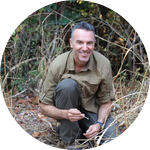About This Project
Do primates understand death? Can they grieve? When a primate baby dies, often the mother will carry its corpse, in some cases for weeks. Some suggest this is evidence of grief. But we can look for other markers of grief, like those that humans show: depression, loss of appetite and lethargy. In this study, we will conduct a field study of macaques to quantify mothers' behavioural responses to the deaths of their infants and search for evidence of grief.
Ask the Scientists
Join The DiscussionWhat is the context of this research?
Every living animal dies. However, until recently, little empirical research has addressed how animals respond to death. This is remarkable because understanding how and why animals respond in the ways that they do to the deaths of others can address fundamental questions about the evolution of emotion, such as: Do animals respond emotionally to death?
Grief is an emotion. Emotions are temporary states that are brought about by events in the physical and/or social environment that prime an individual to respond in an adaptive manner. The study of emotions in animals has been historically avoided not least because it is impossible to ask an animal how s/he feels. However, we can search for similar indicators of grief in primates that are homologous to those found in humans.
What is the significance of this project?
This study will be the first prospective study about how primates respond to death. Although this field is expanding rapidly, hypothesis testing remains rare. Systematically collected data are absent. To our knowledge, no studies have collected prospective data systematically to address questions about primates’ emotional response to the deaths of others.
Beyond being the first study of this kind, the question of the importance of death and dying for the evolution of minds goes beyond solely empirical research. The answers have implications for broader debates over the relationship between emotion and cognition, the nature of animal cognition and sentience, and thus also the ethical standing and treatment of animals.
What are the goals of the project?
This project will ask whether primate mothers grieve the loss of their infant. We will do this by searching for the same behavioural indicators of grief in humans, such as stress, depression and loss of appetite.
Our study will be completed on free-ranging, provisioned macaques at the Caribbean Primate Research Centre, Puerto Rico, a long-term research colony. Each year, approx. 300 infants are born on the island. Births are seasonal: our study will begin at the start of the birth season, lasting 3 months.
We will conduct focal observations on mothers. In the unfortunate instance that an infant dies or disappears, we will compare the behaviour of the mother and two control females: one with a similarly-aged infant, and a similarly-aged female without an infant.
Budget
Research will be conducted at the Caribbean Primate Research Centre, which charges $1000 / month bench fees (including access and transport to the monkeys, use of an office and facilities on the mainland).
Data collection will be undertaken by Emily. Emily's transport to the field site, food and accommodation costs will be covered by another grant.
Endorsed by
 Project Timeline
Project Timeline
Data for this project will be collected over a 3-month-long field season, beginning during the birthing season for the macaques on Cayo Santiago (May, 2022). Data will be collected daily during the field season. On return from the field, we will spend two months analysing data and writing up the results.
Mar 22, 2022
Project Launched
May 01, 2022
Travel to Punta Santiago, Puerto Rico
May 15, 2022
Familiarise with site and macaques
Jul 31, 2022
Data collection ends
Aug 01, 2022
Return to London
Meet the Team
Affiliates
Alecia Carter
I've always wanted to know why animals do what they do. And the more time I've spent with wild baboons in Namibia, the more I've wanted to know what animals are thinking when they do what they do.
I started this journey doing an undergraduate degree in Zoology at the University of Queensland in Australia. I researched the behaviour of an invasive species of fish, and our native kangaroos. For my PhD, I moved to the Australian National University to start studying wild baboon behaviour in Namibia, at the Tsaobis Baboon Project. Since then, I've never really left the baboons! I had a brief affair with another species as a postdoctoral researcher in Cambridge, UK, but came back to the baboons as a Junior Research Fellow at Churchill College, University of Cambridge. I continued researching baboon behaviour as a Research Scientist with the CNRS at the University of Montpellier, France, and then moved my family back to the UK to take up a lectureship in Evolutionary Anthropology at University College London, where I am now.
Since witnessing an orphaned infant baboon being carried by her group mates, both before and after her death, I've wanted to know what compels baboons (and other primates) to perform this behaviour. This has lead me more to the cognitive side of understanding animal behaviour, and my research questions now combine evolutionary and cognitive questions.
Emily Johnson
Animal behaviour has always been a keen interest of mine, which I developed further through my Biology BSc at the University of Sussex. My dissertation into the mating behaviours and personalities of rainbow kribs further expanded my intrigue for explaining variation within social relationships. This fascination led to me pursue my MSc in Human Evolution and Behaviour at UCL. After reading Dr Alecia Carter's paper on infant corpse carrying behaviour by primate mothers, I was eager to participate in further research to understand better the reasons for this behaviour and to what extent primates understand death. Therefore, I am excited for the opportunity to carry out this project and gain a more profficient understanding of primates' apparent grief behaviours and their perception of death.
Project Backers
- 35Backers
- 101%Funded
- $3,447Total Donations
- $98.49Average Donation


